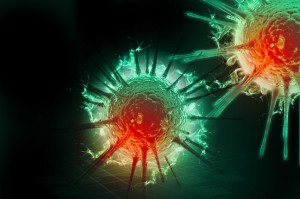By Sayer Ji
Contributing Writer for Wake Up World
Despite the widespread belief that HPV infection is a lethal force against which we only have vaccination and watchful waiting to defend ourselves, both ancient herbal medicine and our body’s inherent immune defenses have been confirmed to have significant power against it.
A groundbreaking study published in the Asian Pacific Journal of Cancer Prevention, titled, “Clearance of Cervical Human Papillomavirus Infection by Topical Application of Curcumin and Curcumin Containing Polyherbal Cream: A Phase II Randomized Controlled Study,” reveals that vaccination and watchful waiting are not the only recourse against HPV infection.
[pro_ad_display_adzone id=”110028″]
The study is believed to be the first of its kind to find an effective and safe therapeutic intervention for the clearance of established cervical human papillomavirus (HPV) infection. Moreover, the study confirmed that HPV infection is self-limiting and clears on its own in 73.3% of the untreated placebo group within 37 days.
The researchers evaluated the effectiveness of two herbal interventions in eliminating HPV infection from the cervix of women who were determined to have HPV infection through Pap smear and HPV DNA tests (PCR), but whose condition had not yet progressed to high grade cervical neoplasias (i.e. cervical pre-cancer).
The first intervention used was a polyherbal vaginal cream containing containing extracts of curcumin, reetha, amla and aloe vera, known by the trade name Basant. The second intervention was a curcumin vaginal capsule. The other two placebo groups received either a vaginal placebo cream or a placebo vaginal capsule.
All 287 subjects were instructed to use one application of the assigned formulation daily for 30 consecutive days except during menstruation. Seven days after the last application they were recalled for repeat HPV test, cytology and colposcopy.
The results were reported as follows:
HPV clearance rate in Basant arm (87.7%) was significantly higher than the combined placebo arms (73.3%). Curcumin caused higher rate of clearance (81.3%) than placebo though the difference was not statistically significant.
Vaginal irritation and itching, mostly mild to moderate, was significantly higher after Basant application. No serious adverse events were noted.
While both of the herbal formulations clearly increased the rate of HPV clearance, it is noteworthy that the placebo group also experienced a 73.3% clearance rate, as it confirms that majority of HPV infections will clear from the body as a result of the immune system doing its job correctly. The researchers acknowledged that this is not a novel finding:
It is already documented that the majority of HPV infections are self-limiting and cell-mediated immunity is responsible for spontaneous clearance.
Indeed, we addressed this under appreciated fact in a previous article titled, The HPV Vaccine Debate: Don’t Ask, Don’t Tell:
[I]n 2004, Lancet published a study which found that low-grade squamous intra-epithelial cervical lesions (LSIL) commonly associated with HPV infection spontaneously regress in 61% of females within 12 months and 91% within 36 months.[i] LSIL is considered a mild form of cervical dysplasia (CIN), but is nonetheless often subject to more aggressive measures such as a colposcopy with biopsy,[ii] which sometimes leads to surgical treatment.
Another 2010 study published in the European Journal of Obstetrics, Gynecology and Reproductive Biology found that at the end of 12 months of follow-up, the CIN 2 regression rate was 74% (31/42), progression rate to CIN 3 was 24% (10/42) and in one case CIN 2 persisted (2%). Finally, a 2011 study in the Journal of Lower Genital Tract Diseases found At 12 months, 70% of CIN 1 and 54% of CIN 2 lesions spontaneously regressed (p<.001).[iii]
The odds therefore are clearly in the favor of HPV-associated abnormal cell changes (so-called ‘precancerous’ lesions) regressing naturally like most self-limiting viral infections. Vaccines are clearly not responsible for the ‘protection’ conferred by our inbuilt immunity; nor is the HPV virus some inevitable force of lethality that only universal HPV vaccination campaigns can effectively countermand.
Given the widespread belief that HPV infection is a lethal force against which we have only vaccination and watchful waiting to defend ourselves, this latest encourages us to recognize both the power of the human body and natural plant allies to help us maintain our health, despite the constant threat of infection.
In actuality, the results of the intervention are not surprising, given the established body of research indicating curcumin’s value as an anti-cancer agent. Not only has this powerful turmeric polyphenol been extensively researched for its anti-cancer properties in over 100 difference cancer cell types, the GreeMedInfo database contains 11 studies specifically on curcumin’s anti-cervical cancer properties, which can be viewed here.
For additional information on HPV related concerns, view the following sections on our database:
Further articles by Sayer Ji:
- Roundup Weedkiller Found In 75% of Air and Rain Samples, Government Study Finds
- Live Flu Vaccines Increase Infectious Bacteria Counts 100-Fold in Mice
- FAIL: Another Mammography Study Finds They Don’t Save Lives
- MSG Proven Highly Toxic: 1 Dose Causes Headache In Healthy Subjects
- Black Seed Extract ‘Cures’ HIV Patient Naturally
- The Grain That Damages The Human Brain
- The Cancer-Causing Metal Millions Eat, Wear or Have Injected Into Their Kids
- Biophotons: The Human Body Emits, Communicates with, and is Made from Light
- The 2013 Measles Outbreak: A Failing Vaccine, Not A Failure To Vaccinate
- 3 Evidence-Based Ways To Reverse Skin Aging Naturally
- Why Is The Food Industry Poisoning Us With Trillions of Nanoparticles?
- How to Clean Your Arteries With One Simple Fruit
- 13 Evidence-Based Medicinal Properties of Coconut Oil
About the author:
Sayer Ji is an author, researcher, lecturer, an advisory board member of the National Health Federation, and the founder of GreenMedInfo.com, the world an open access, evidence-based resource supporting natural and integrative modalities. His writings have been published and referenced widely in print and online, including Truthout, Mercola.com, The Journal of Gluten Sensitivity, New York Times and The Well Being Journal.
In 1995 Sayer received a BA degree in Philosophy from Rutgers University, where he studied under the American philosopher Dr. Bruce W. Wilshire, with a focus on the philosophy of science. In 1996, following residency at the Zen Mountain Monastery in upstate New York, he embarked on a 5 year journey of service as a counsellor-teacher and wilderness therapy specialist for various organizations that serve underprivileged and/or adjudicated populations. Since 2003, Sayer has served as a patient advocate and an educator and consultant for the natural health and wellness field.
[pro_ad_display_adzone id=”110027″]








